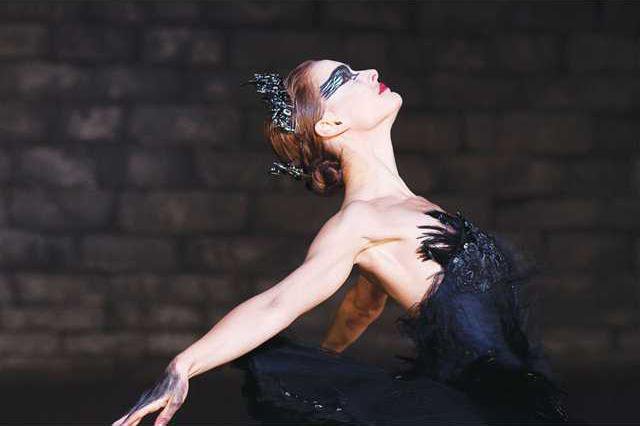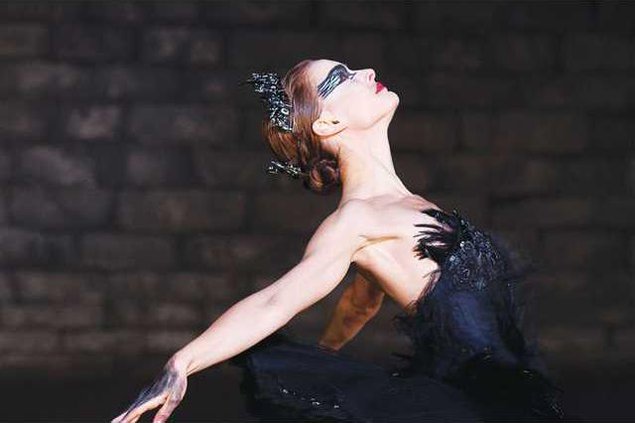‘Black Swan'
Starring: Natalie Portman, Barbara Hershey, Winona Ryder, Vincent Cassel and Mila Kunis
Rated: R for strong sexual content, disturbing violent images, language and some drug use.
Runtime: 1 hour, 48 minutes
Bottomline: A sumptuous and frightening masterpiece.
I've never seen anything like "Black Swan," and I almost never get to say that.
Film geeks might get only one truly unique film each year, so forgive me if the following review drifts into over-the-top, gushing praise. But this is that rare film that reminds us why we love movies.
"Black Swan" is a dark thriller, a psychological drama and a backstage telling of the ballet "Swan Lake." Nina (Natalie Portman) dances for a New York City ballet company. While still young, she has been with the company for years and hasn't yet caught her big break. Her dancing is technically perfect, but lacks passion.
There is no mystery about why Nina's dancing is repressed. Her smothering hen of a mother, Erica (Barbara Hershey), is a former ballerina who lives vicariously through her daughter's career. Erica retired when she became pregnant with Nina, and now she harbors a demented resentment for Nina, even as she dotes on her.
Nina gets her chance to dance her dream role, The Swan Queen, when the company's prima ballerina, Beth (Winona Ryder) is forced to retire. Beth is not happy about being ousted and focuses her hostility on Nina after artistic director, and Beth's former lover, Thomas Leroy (Vincent Cassel) casts Nina in the role.
The Swan Queen actually comprises two contrasting characters. She must be the innocent, fragile White Swan at times and the seductive, manipulative Black Swan at others. Nina is the perfect White Swan but lacks the guile and sensuality required for the Black Swan.
As Nina struggles to find her own inner femme fatale, a new dancer, Lily (Mila Kunis), joins the company and is the very embodiment of the Black Swan. Lily's dancing is flawed but effortless, and she is free, sensual and sexy. Lily befriends Nina, who views Lily as both a muse and a rival.
"Black Swan" opens with a mesmerizing sequence which shows us Nina's dream of dancing as the White Swan as she is seduced by Rothbart. They dance in darkness except for a spotlight that follows them as the camera glides effortlessly through space in step with them, complementing their movements.
The scene evokes both rapture and terror but is thoroughly beautiful and introduces the film perfectly.
Because what "Black Swan" does best is immerse us in the mind of an obsessive dancer coping with the promise and anxiety of her most crucial career moment, not to mention the obsessive personalities around her.
Director Darren Aronofsky creates a cinematic world that straddles reality, Nina's dreams and nightmares, and her waking, fear-induced delusions.
As Nina's obsession and paranoia grow, her mania increasingly manifests in hallucinations that intrude on reality. But Aronofsky also takes us deeper and more often into Nina's mind itself, until we eventually can't distinguish between what is real and what is the grotesquery of Nina's imagination.
Portman does a respectable amount of her own dancing and does it well. The role as a whole is a tour de force. She and the entire cast and crew deserve every one of the awards they have already begun to win.
Despite its originality, "Black Swan" does borrow from certain cinematic ancestors. The cinematography and character development are reminiscent of Aronofsky's own "The Wrestler." The atmosphere of the theatre recalls Robert Altman's "The Company." The descent into Nina's mind owes a debt to Roman Polanski's "Repulsion." And certain scenes morph into genuinely scary horror.
The dance sequences even show flashes of experimental films like Maya Deren's "A Study in Choreography for Camera," Man Ray's "Return to Reason," and René Clair's "Entr'Acte."
That might be the strangest combination of influences we've seen in years, and it produces a true cinematic experience.
"Black Swan" cements Aronofsky's place among the best filmmakers working today, and it will undoubtedly vie for best of the year honors.
It will certainly be on my top 10 list.
Jeff Marker is a media studies professor at Gainesville State College.

